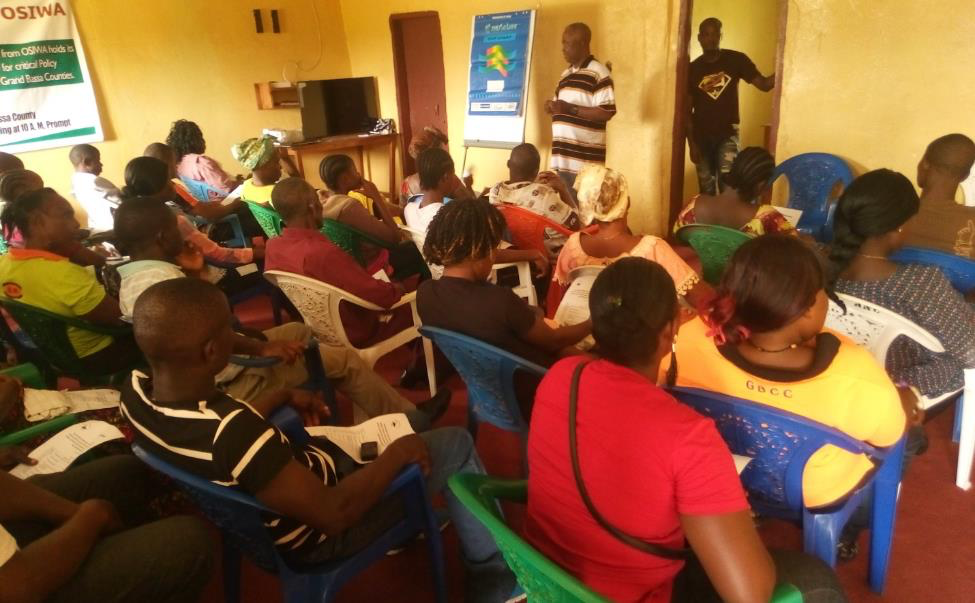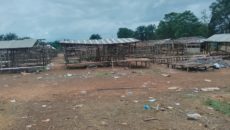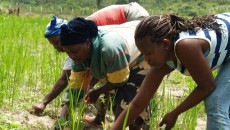BUCHANAN, Grand Bassa – The Farmers Union Network of Liberia, an advocacy group for the agricultural sector, says it wants the government to provide more support to local farmers across the country.
The call was made by the organization’s national coordinator, Julius M. Bass, over the weekend in Buchanan during a critical policy meeting, covering issues affecting farmers across the country. The dialogue was supported by the Open Society Initiative of West Africa and brought together 35 farmer leaders from rural Montserrado and Grand Bassa.
“We have realized that year in, year out, farmers are not captured in the national budget. That is why we are going from county to county to see how they can come up with priority issues to petition the National Legislature so that they can be captured in the next budget as a matter of policy,†Bass said.
He said critical needs for farmers were financial support, mechanized farming equipment, proper storage, and seedlings and other agricultural inputs.
Bass believes that the country can increase food productivity if it assists farmers in these areas. He noted that food security is paramount to every nation and the government needs to prioritize agriculture by providing adequate support to farmers.
“The saying that Liberia cannot feed herself is not true. We can feed ourselves, but it is just the matter of assisting the farmers – giving them the basic tools and training and they will be able to do marvelously in this country,†he added.
The meetings across the country with farmers were providing critical views, comments, and ideas, which Bass said would be compiled and presented to the legislature.
“Other countries along the West African belt such as Mali and Senegal are almost feeding themselves because their governments have put aside money to help the farmers,†he added. “But here in Liberia, the farmers are using the machete and hoe. How much can they do?â€
Emmis Varney, a farmer from rural Montserrado attending the meeting, said there are several challenges in the agricultural sector that government needs to address, such as land, providing loans, and improving the road network.
He said the Ministry of Agriculture needs to support farmers across the country to produce more food through loans with low interest rates and through tools and seeds. He said farmers cannot afford to pay loan with interest rates higher than 10 percent.
Nancy Bryant, who runs the Rise and Shine Multipurpose Cooperative in Grand Bassa, said providing subsidies to local farmers would boost the agriculture sector.
“We have not received any help from the government,†she noted. “The work we have been doing, we do it on our own. It really affects us because, without the materials, the work cannot be done the way we want to do it. The cassava we have there, we want to add value by making it out of Super Gari, but no machine.â€
Liberia, along with other African countries, signed the Malabo Declaration in June 2014 pledging to allocate at least 10 percent of public expenditure to agriculture and to ensure its efficiency and effectiveness to end hunger in Africa by 2025. Liberia allocated just 1.4 percent of its current budget to agriculture.
The Ministry of Agriculture currently has US$4.67 million in the 2018/2019 fiscal year budget, representing an 86 percent increase from the previous year of US$2.5 million. In that budget is the US$1.995 million allotted to the Rice Value Chain Development project and US$196,192 for general agricultural supplies and inputs.
Ken Kumeh, the Ministry of Agriculture’s deputy director for communications, confirmed that the ministry provides support for farmers across the country, including smallholder or subsistence farmers.
He said the ministry has been supporting farmers across the country and would continue to do so, especially for those captured under the ministry’s E-Registration database, which allows the government to track farmers and provide them with information and assistance to increase their yields and gain access to markets.
“But whether captured or not, we are there to support all farmers,†Kumeh said.
At the time of the interview, the national budget had just been passed and Kumeh said his ministry was still in transition.
“This is a new administration; so, we are trying to put everything together to ensure that farmers, especially rice producers, cassava and vegetable producers can be helped. This is a one-year plan under the Pro-Poor Agenda,†he said.
Featured photo by Sampson David



